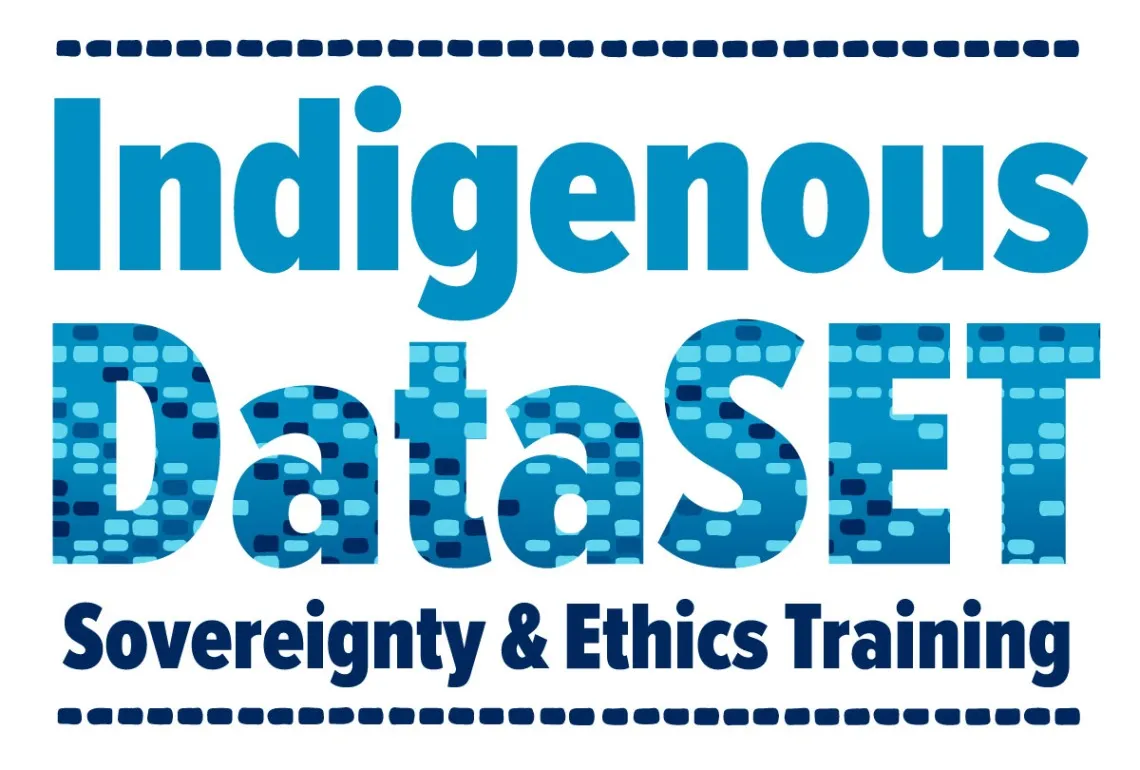New Training Program Invites Early-Career Faculty Across Arizona to Elevate Indigenous Research in the State
The Indigenous DataSET Fellows Program will support researchers at the postdoc through assistant-professor level from Arizona's public universities and tribal colleges.

Led by the top scholar on Indigenous Data Sovereignty (IDSov) and Indigenous Data Governance (IDGov) in the U.S., Dr. Stephanie Russo Carroll (Dene/Ahtna; citizen of the village of Kluti-Kaah), a small team of seasoned researchers dedicated to moving the conversation on IDSov and IDGov forward at the state level have launched a new training program for early career faculty at all seven public universities and tribal colleges in Arizona.
Each year through 2027, the program, dubbed Indigenous DataSET (Indigenous Data Sovereignty and Ethics Training), will invite 15 faculty members from any discipline at the post-doc through assistant-professor levels to participate in an intensive education and outreach program designed to protect Indigenous communities and their data by enhancing tribal research and data governance in the state.
Any and all early-career faculty from the University of Arizona, Arizona State University, Northern Arizona University, Diné College, San Carlos Apache College, Navajo Technical University and Tohono O’Odham Community College are invited to apply to participate in the inaugural cohort of Indigenous DataSET Fellows by July 15, 2023.
The inaugural cohort of Fellows will spend the 2023-24 academic year engaging in a custom curriculum of IDSov and IDGov content designed by Dr. Carroll, Associate Director of the University of Arizona’s Native Nations Institute and Assistant Professor at the College of Public Health, and her team.
After the training program is complete, Fellows will participate in a national Indigenous Data Sovereignty-focused conference in Tucson and work with Indigenous DataSET program leaders to help shape the program for future Fellows.
IDSov in the Mainstream
Though the term “Indigenous Data Sovereignty” wasn’t coined until 2015, it represents rights and responsibilities that Indigenous Peoples have enacted since time immemorial. IDSov as a movement has been a topic of contention since the mid-1990s when the Canadian government sought to exclude Indigenous Peoples from three national population surveys. Discussions of Indigenous sovereignty over data gained additional momentum when the United Nations adopted the UN Declaration on the Rights of Indigenous Peoples in 2007.
Since then, discussions have evolved from general conversations about the need for Indigenous Peoples and nations to have the ability to assert some level of autonomy and control over data about their lands and citizens, to outlining exactly what an appropriate level of control might look like and defining who should determine what does and doesn’t qualify as acceptable research practices.
“There are a lot of different data actors who engage with Indigenous Peoples’ data,” says Carroll. This includes the individual subjects who might participate in a research study, the researchers conducting that study, government entities who might aggregate or utilize the resulting data, as well as the funding organizations and private companies that support research projects and ultimately benefit from the findings of those studies.
But, Carroll says, since it is the right of Indigenous Peoples to determine how, when and if their data is collected, used and distributed, “Indigenous Peoples are ultimately the only ones who can define, apply and advance the mechanisms of IDSov and IDGov.”
The Next Generation of Ethical Research
Key to the advancement of IDSov and IDGov to the highest levels of research and government authority is the aggregation and implementation of Indigenous research codes and policies into modern research practices – a process that isn’t always second nature to a research body that is historically more focused on outputs than on the ethical considerations surrounding their processes.
“Defining principles and guidelines around IDSov and IDGov are important components of ensuring that research looking at Native nations and Native Peoples isn’t just extractive and, instead, actually benefits the Indigenous communities and individuals they study,” says Carroll, “But it’s also crucial to make sure that the individuals who are performing, directing and authorizing those research projects are clear on their roles and responsibilities when it comes to working with Indigenous data and knowledges.”
The immediate impact of the Indigenous DataSET program, Carroll says, will be a better informed and more capable set of research professionals – at least, that is, for those researchers selected to participate in the program. Long term, however, the goal is to make sure that all research involving Native Peoples in Arizona recognizes and supports the sovereignty of the state’s 22 federally recognized tribes and their nearly 300,000 citizens.
“We’re thrilled to be able to provide the training necessary to help researchers in Arizona build a foundation for conducting informed and ethical research with Native nations and citizens,” Carroll says, “and we’re looking forward to seeing that impact ripple outward to the peers and colleagues of those who participate in this program at all of the public institutions of higher education in the state.”
The Indigenous DataSET Fellowship program is funded by the American Indian Research Centers for Health at the Inter Tribal Council of Arizona.
Applications for the inaugural cohort of Fellows are due July 15, 2023. Selections will be made by August 7, 2023 and the program will run from August 2023 through the yet-to-be-determined dates of the Indigenous Data Sovereignty Conference in the spring of 2024.
For more general information on the fields of IDSov and IDGov, as well highlights of Carroll’s contribution to those fields, see the recent University of Arizona News coverage on the subject here.
You can also find more information on the Indigenous DataSET Program and a link to the application here.

